
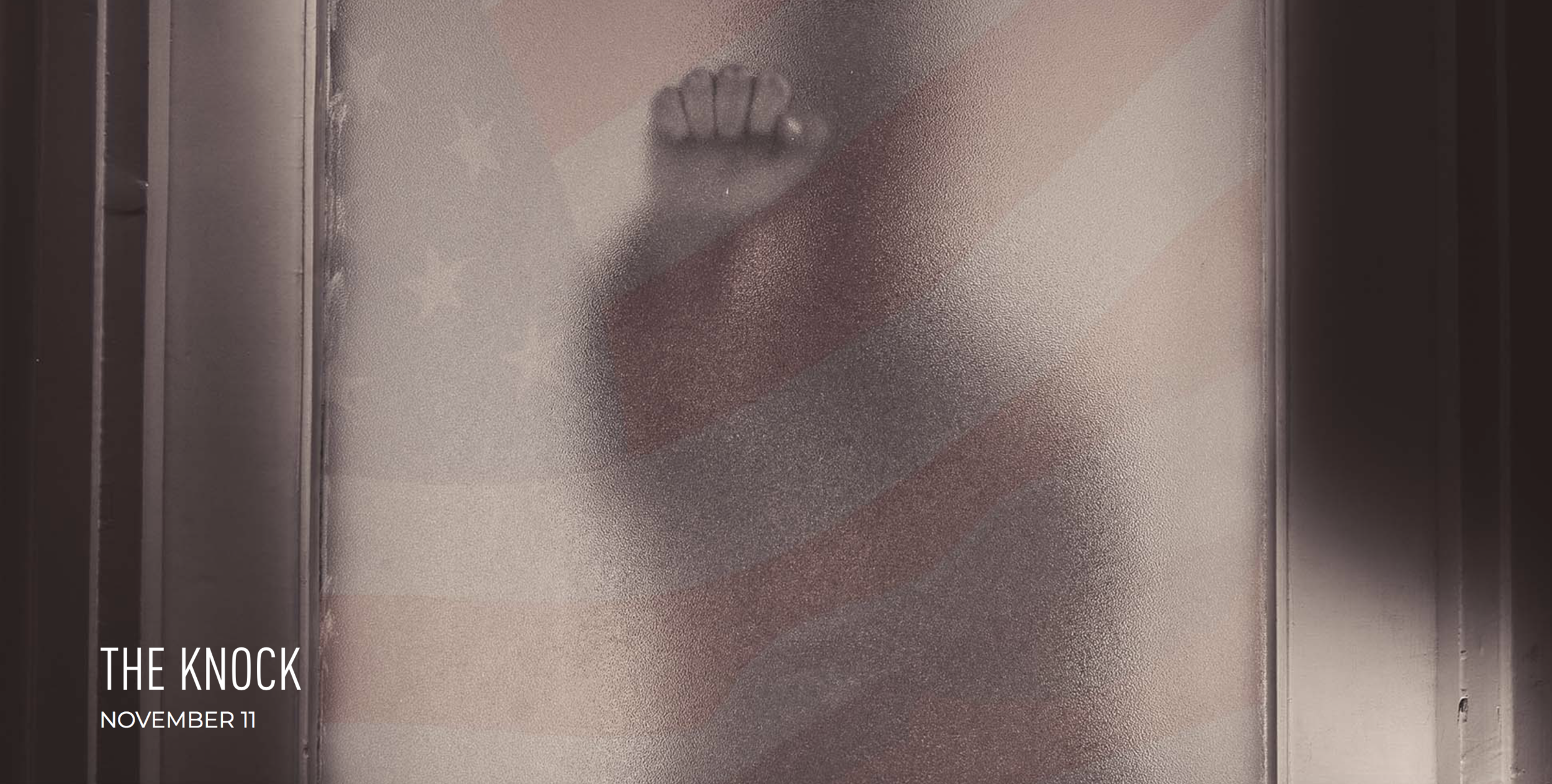
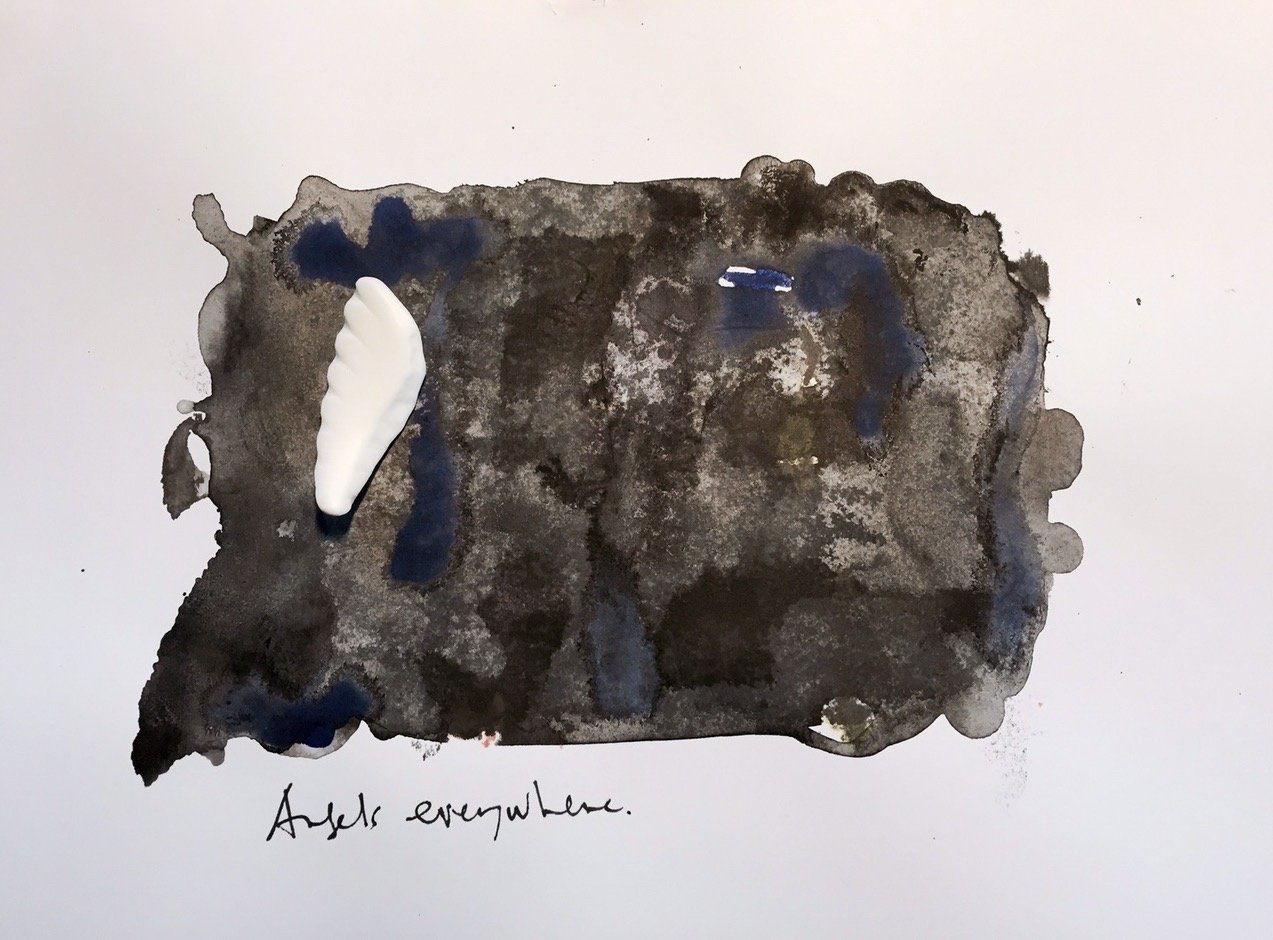

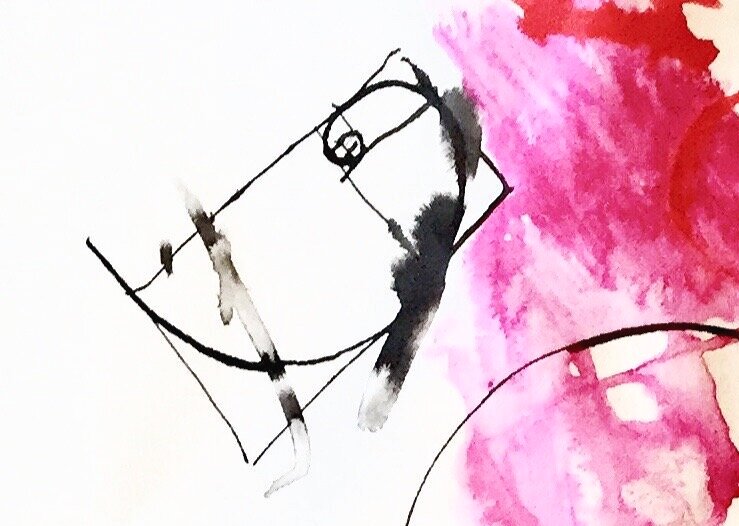
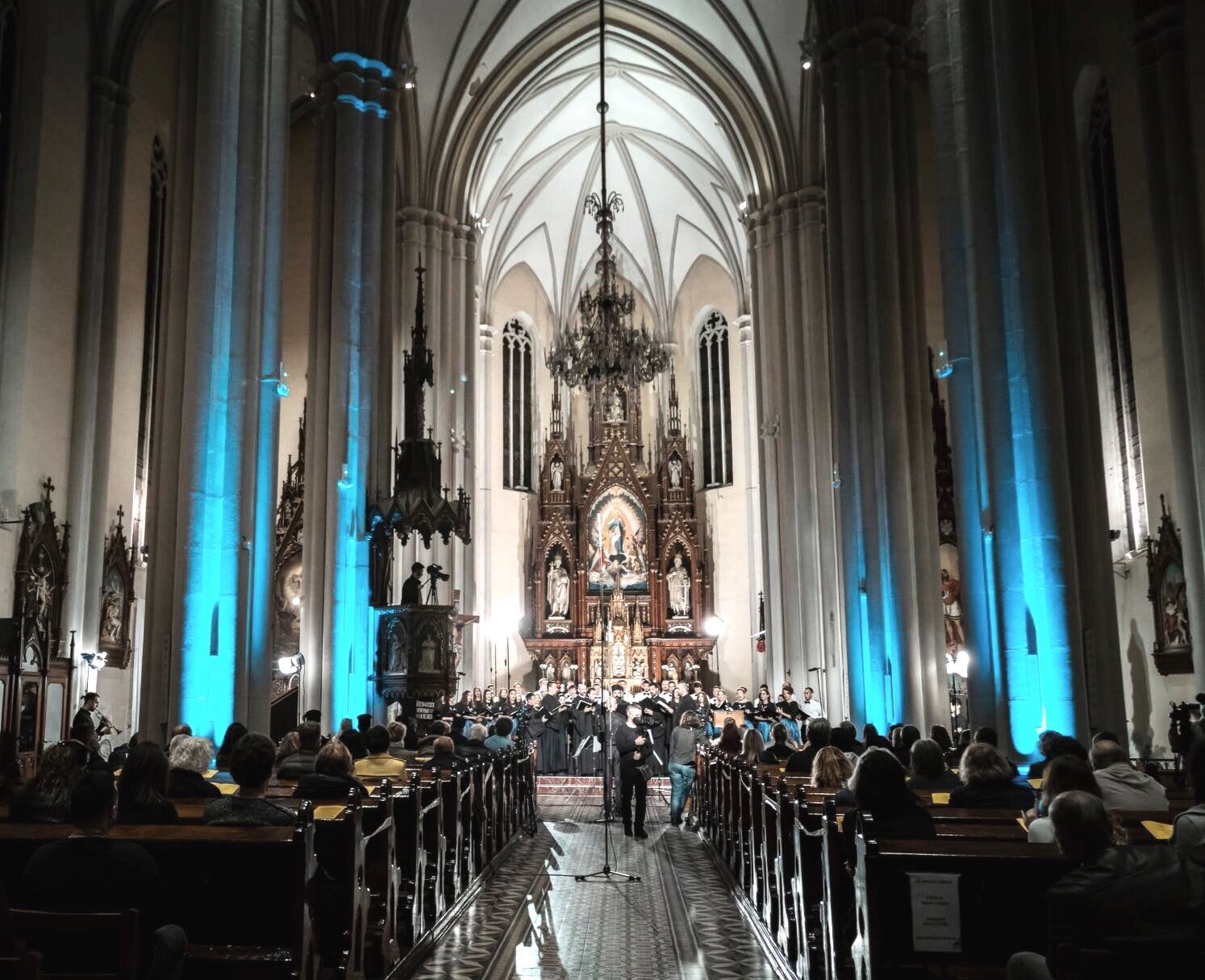
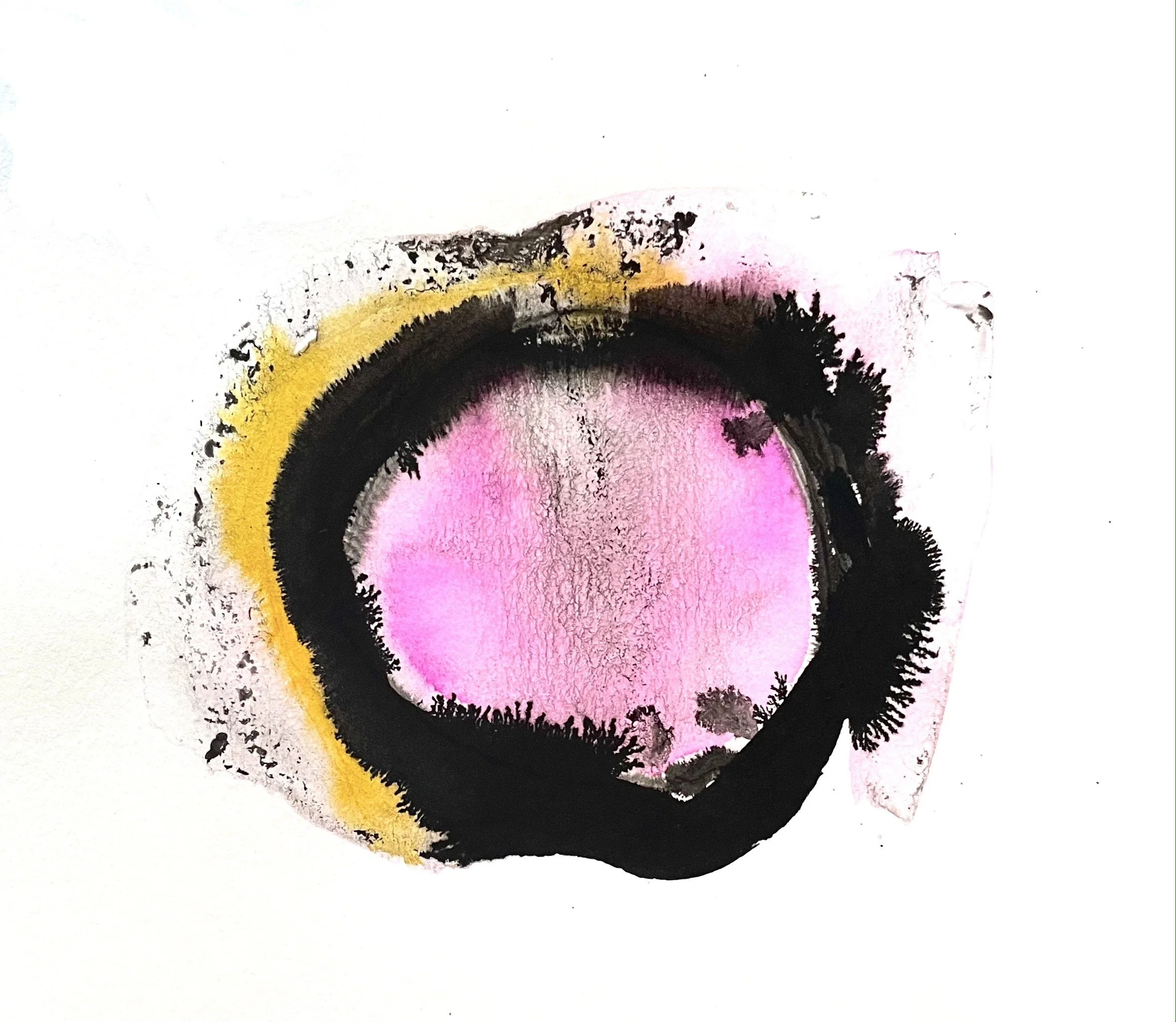
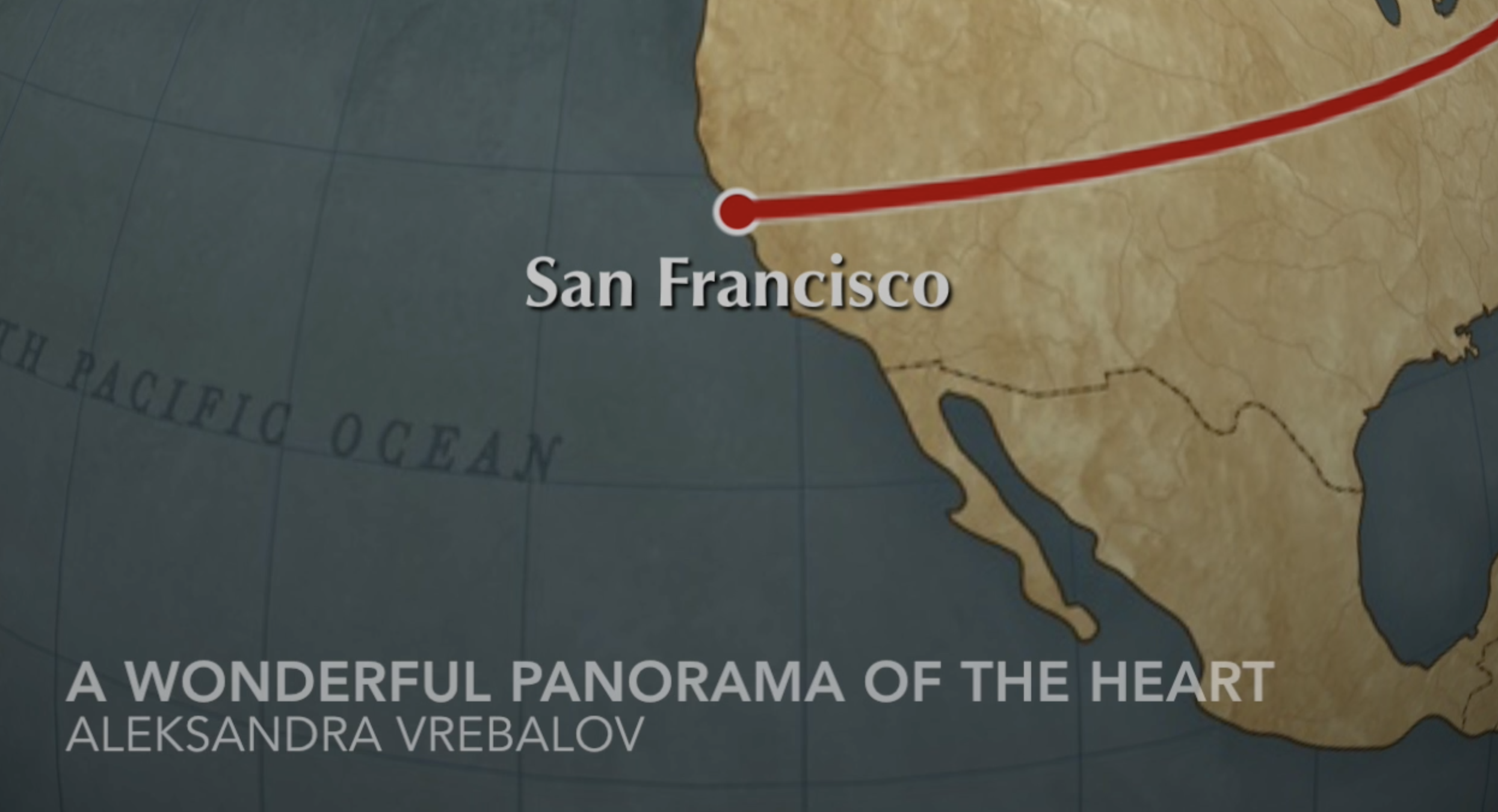
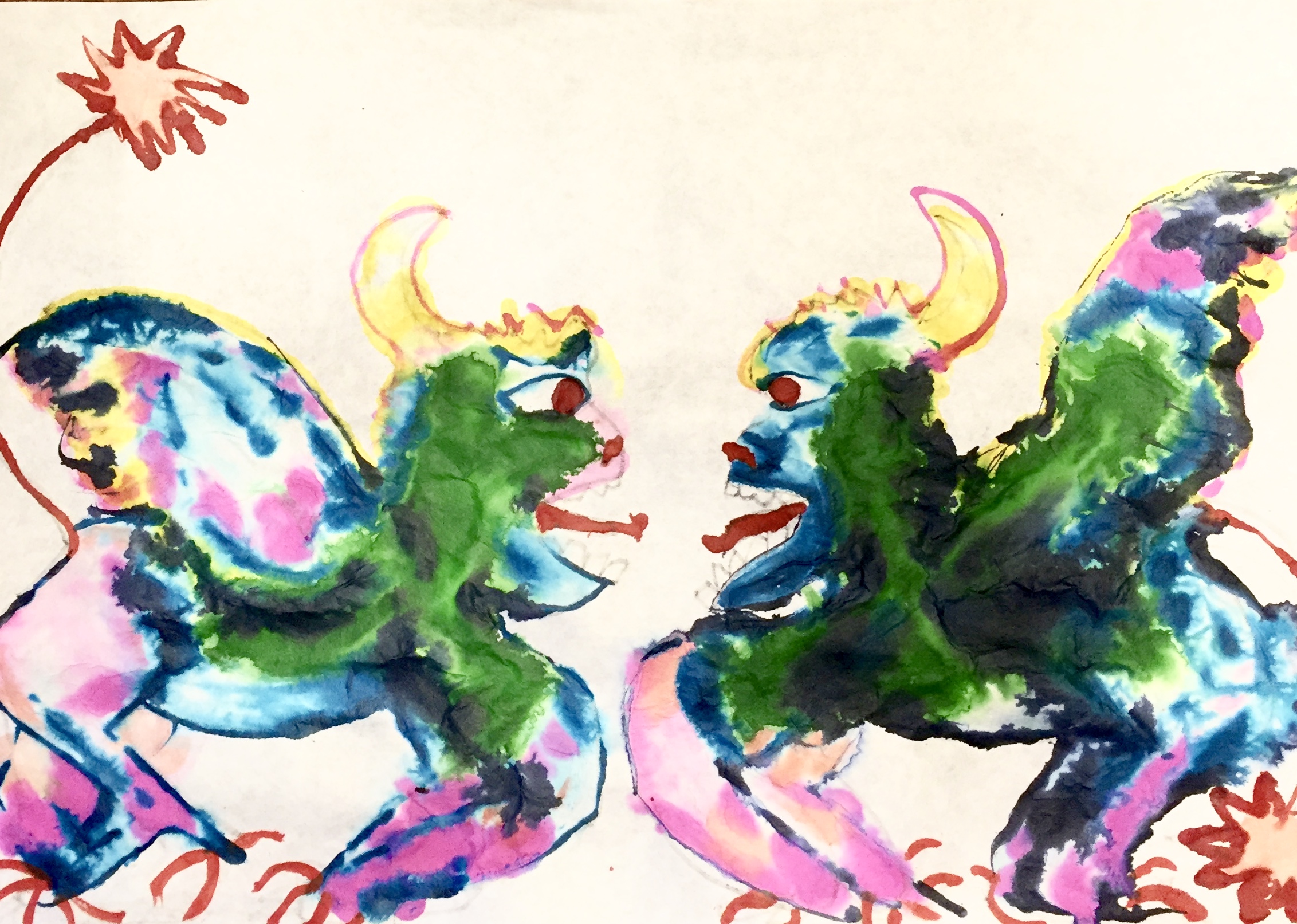
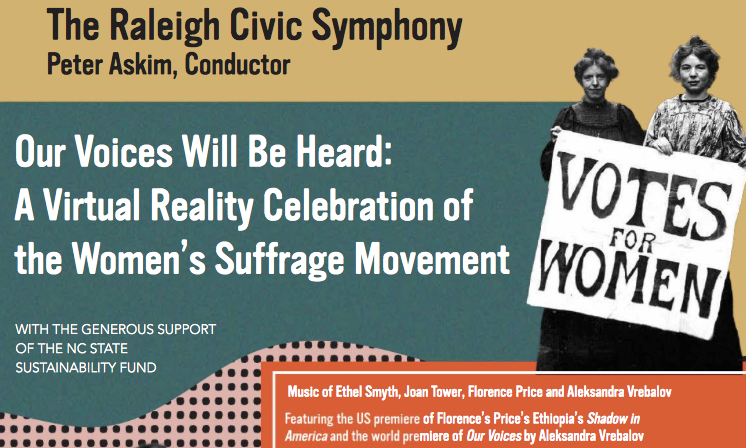
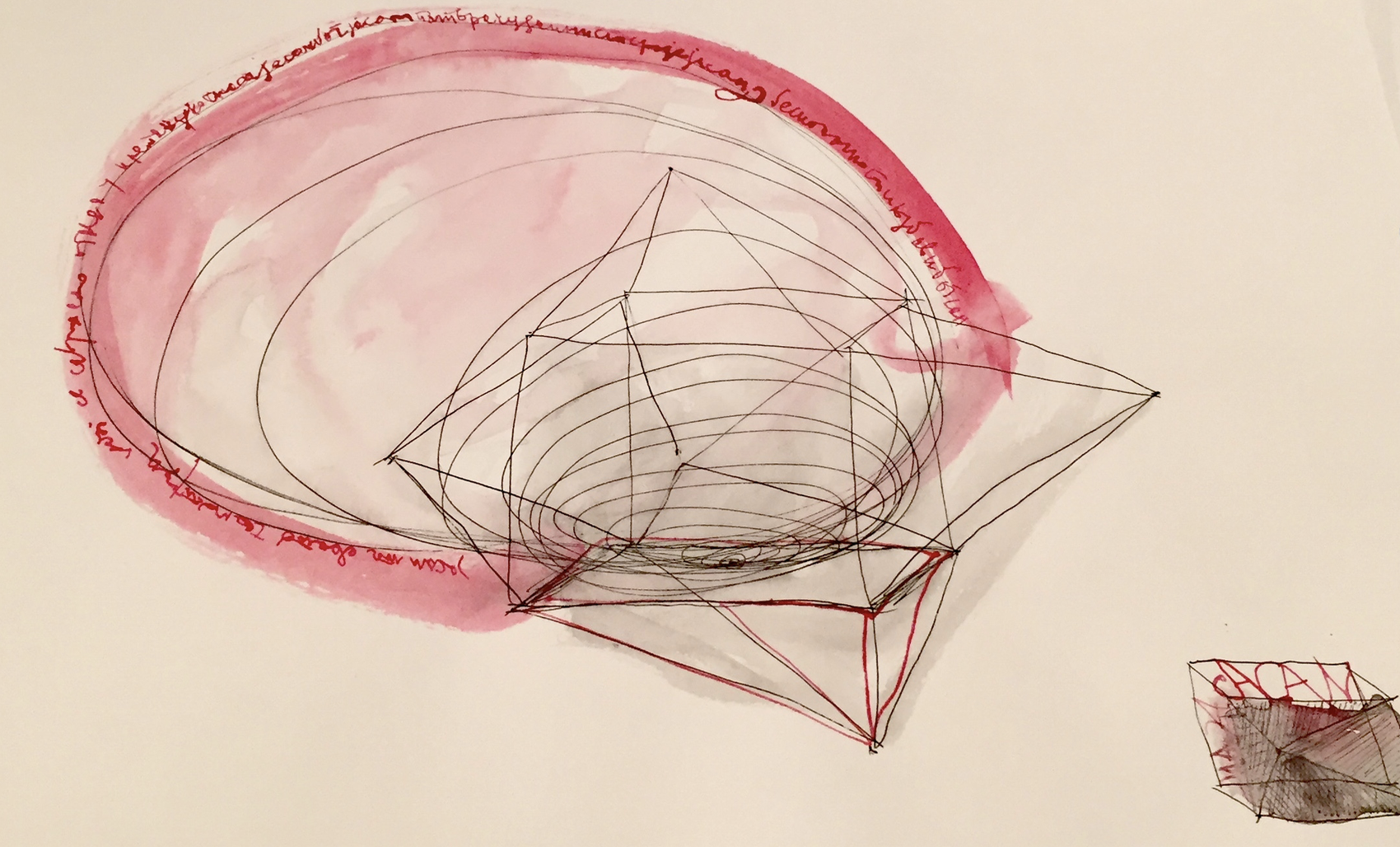
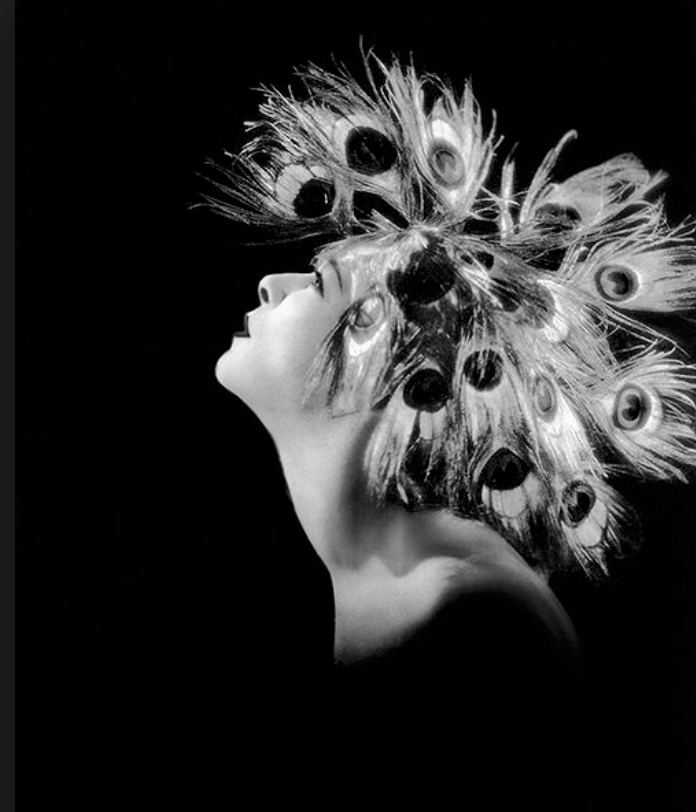
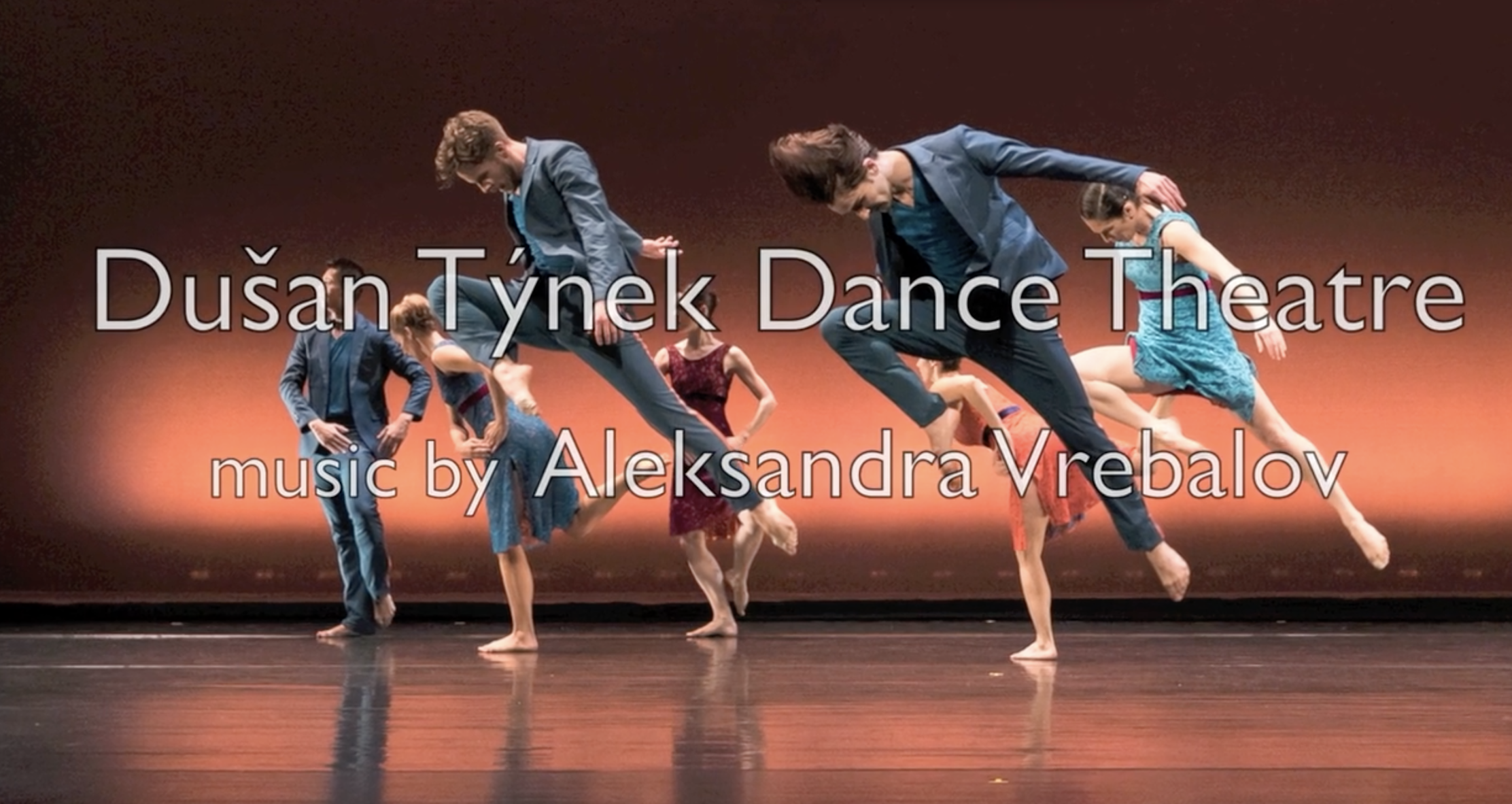
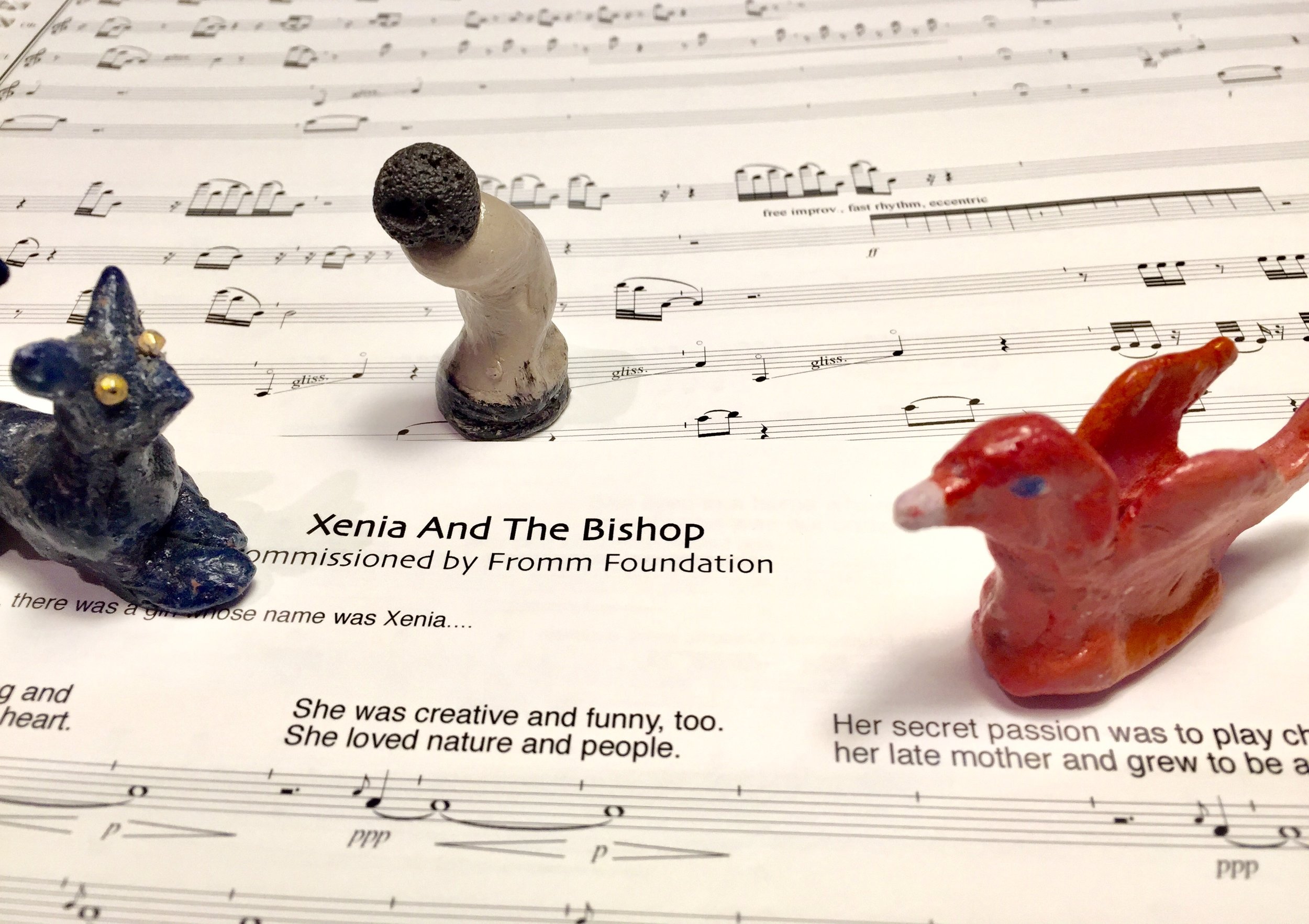

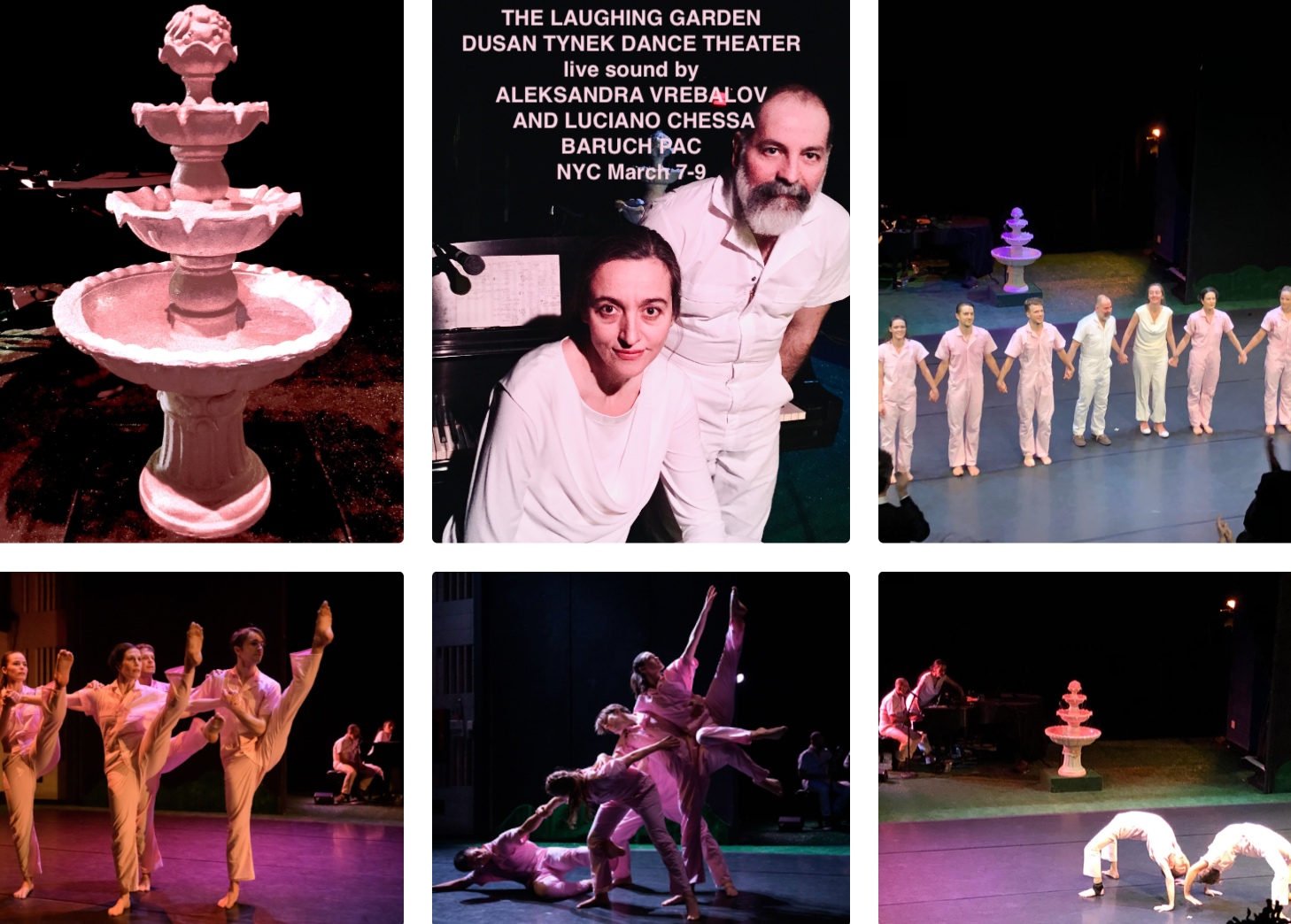
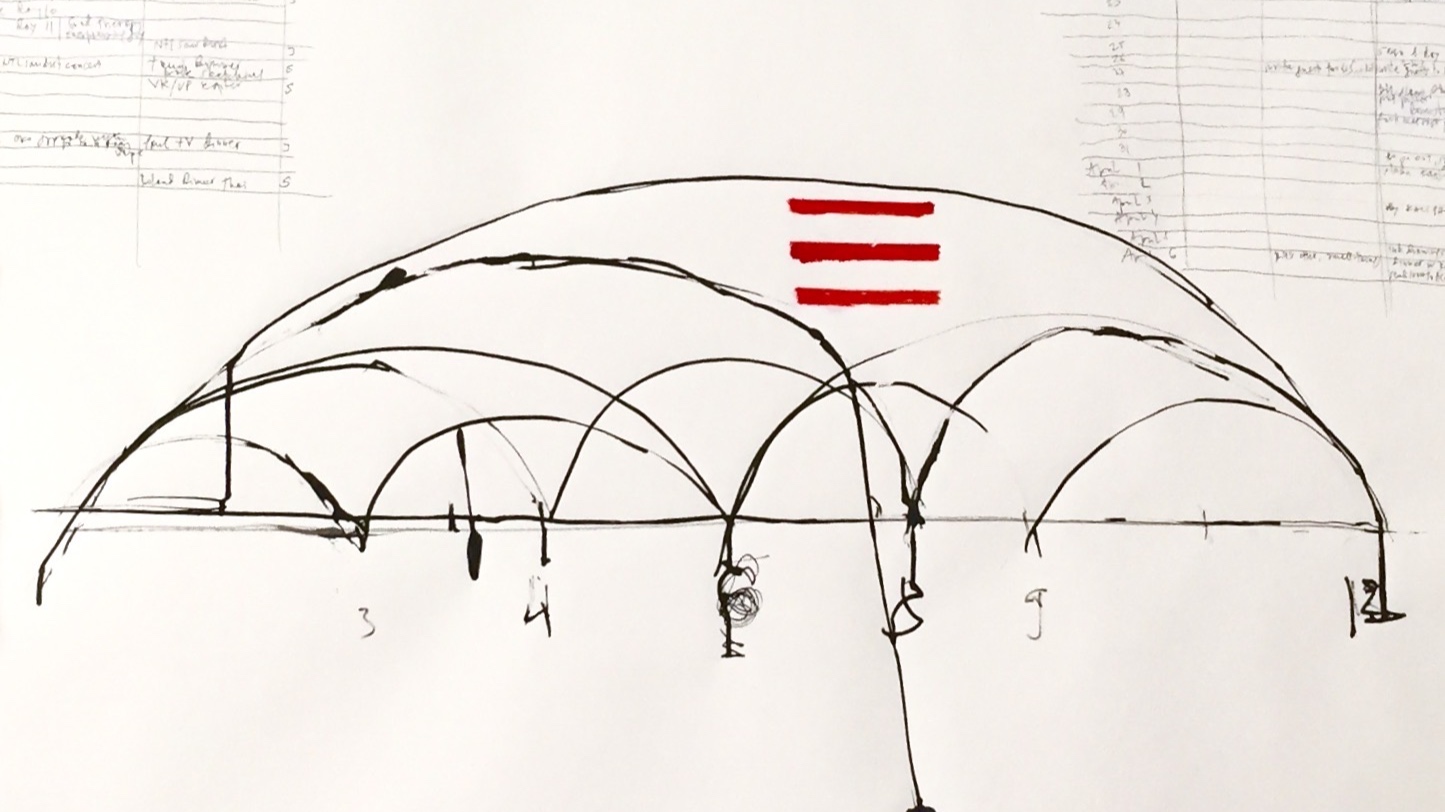
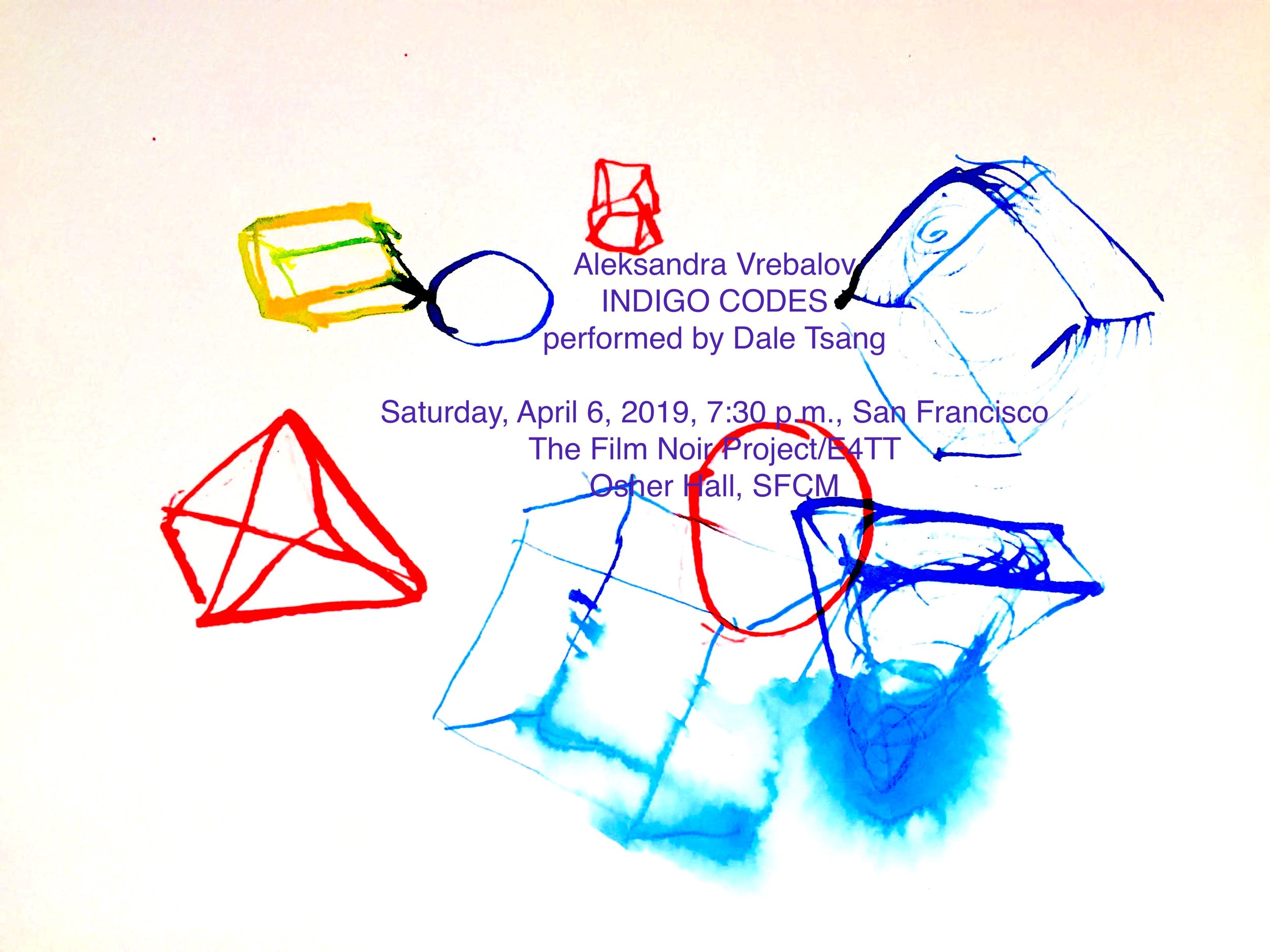
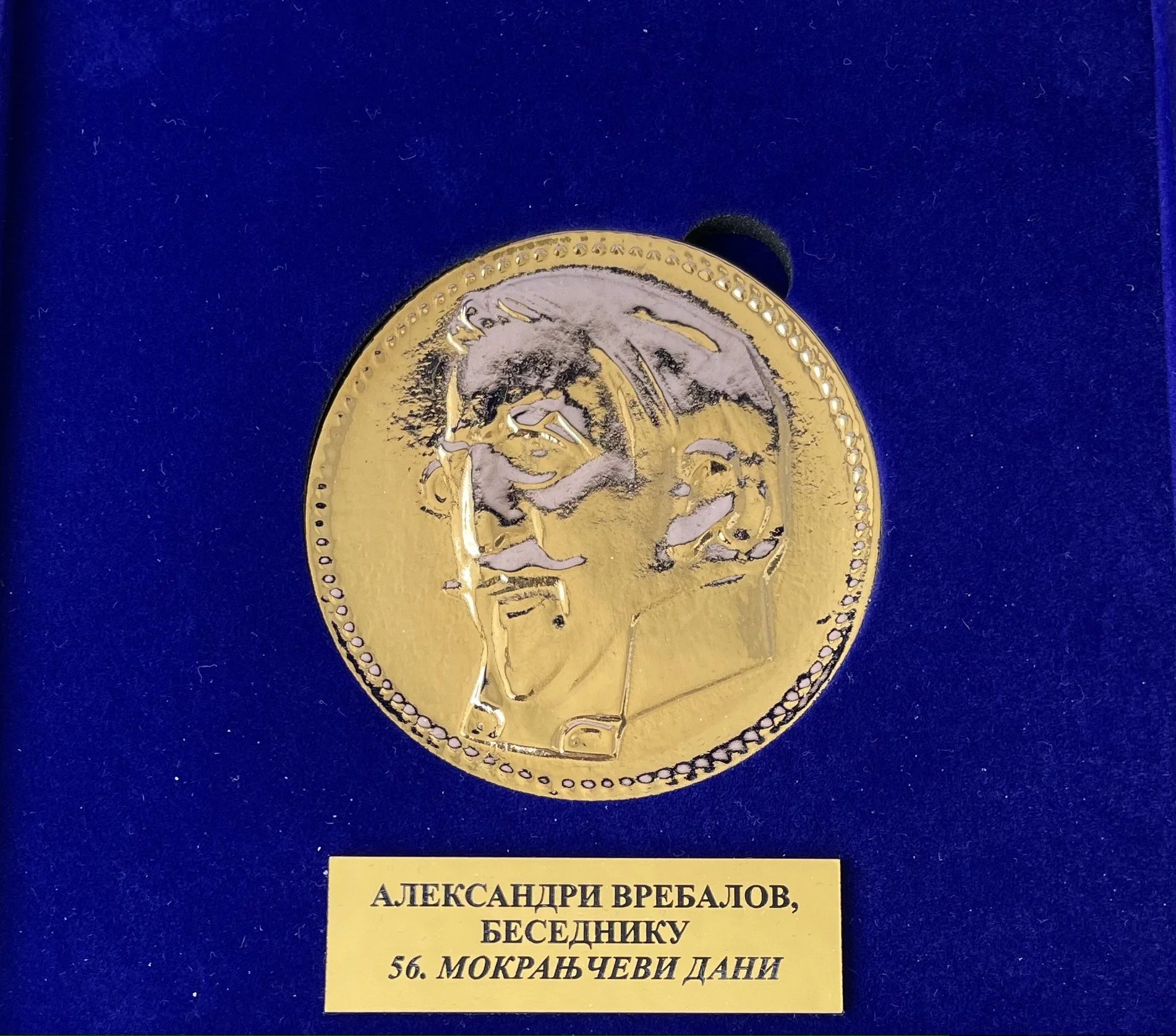
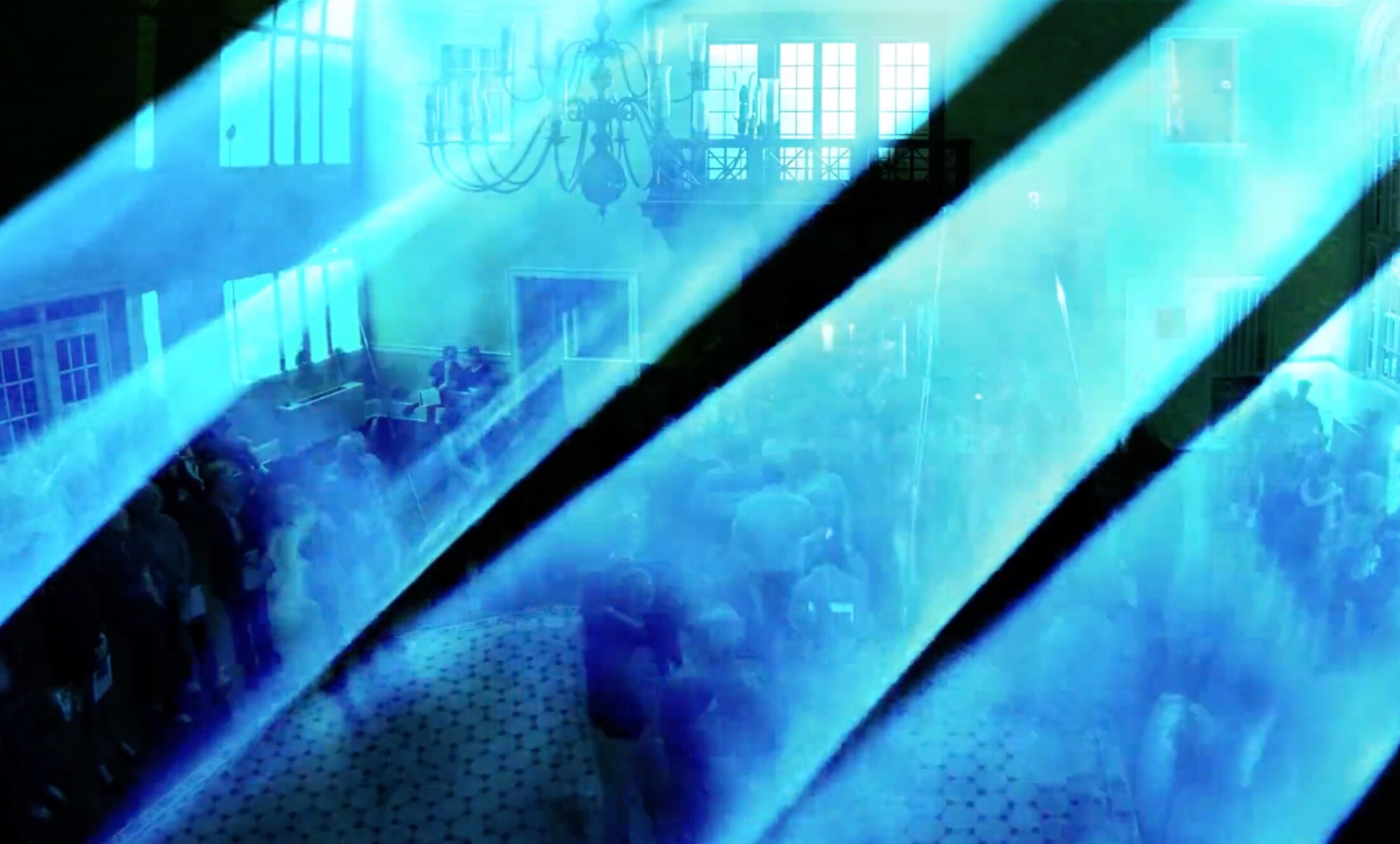
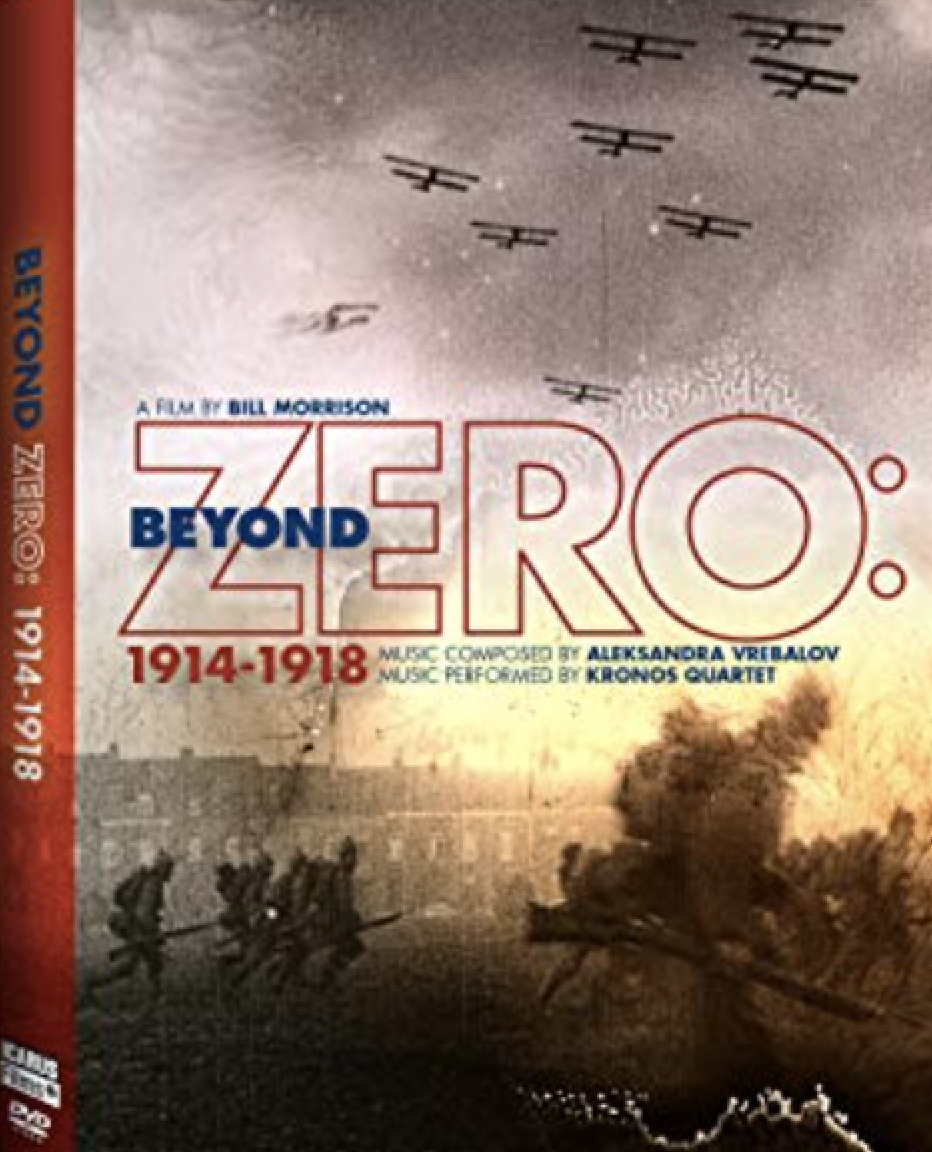
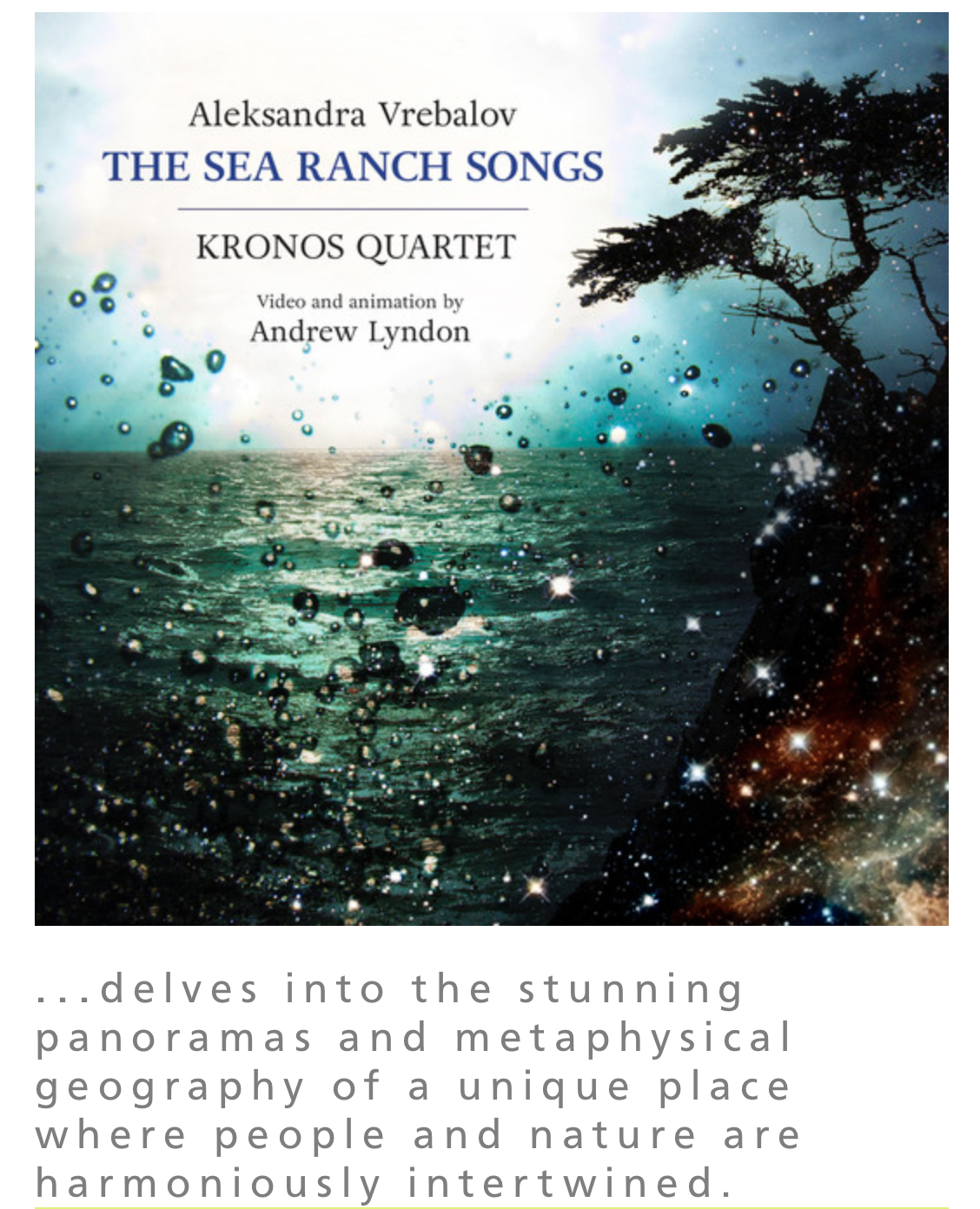
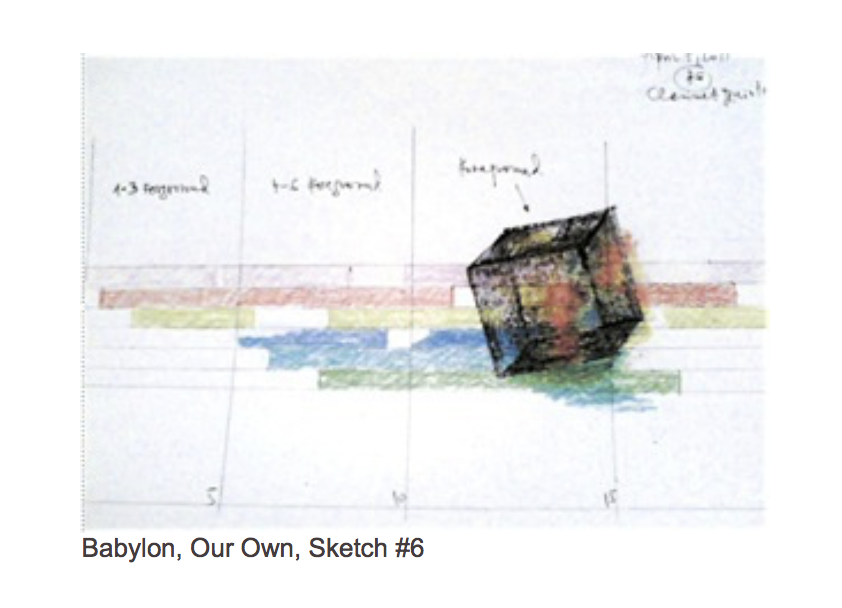
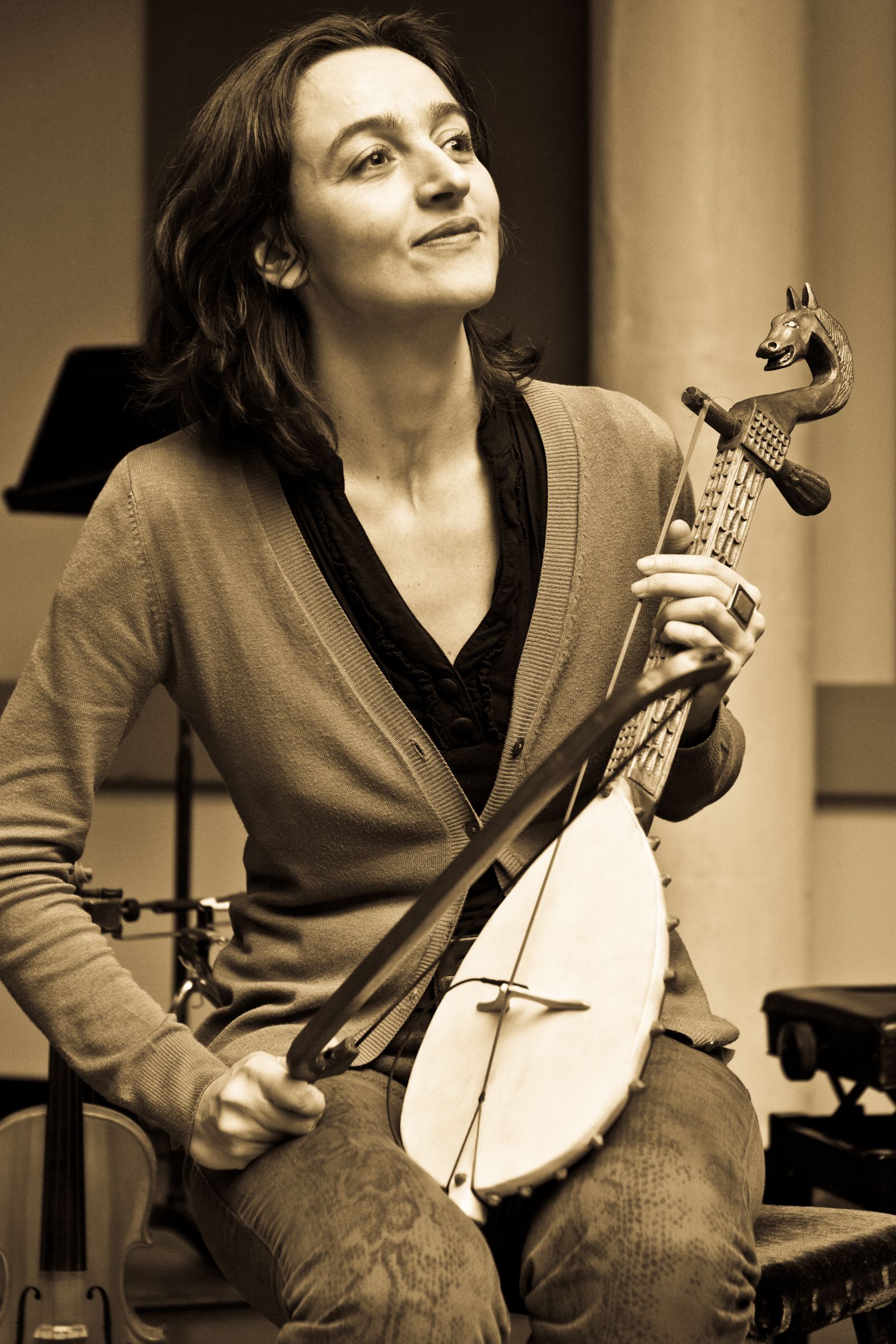
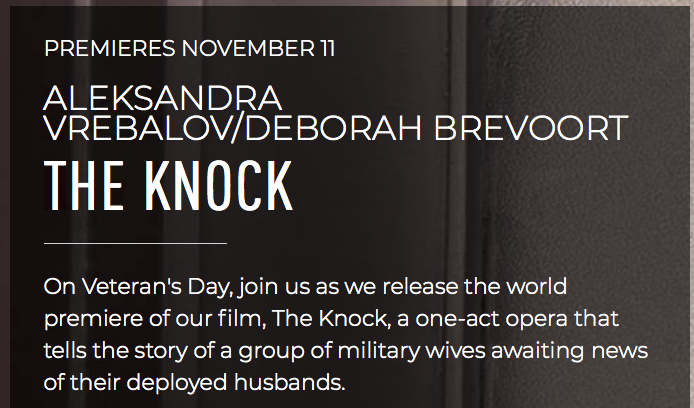


NEWS:
Aleksandra Vrebalov is the recipient of the 2025 Darinka Matić Marović Award, an honor awarded biennially for exceptional contributions to art music in the region of the former Yugoslavia.
Aleksandra Vrebalov has been elected as a corresponding member of the Serbian Academy of Sciences and Arts (SASA). The election, held every three years, recognizes outstanding contributions to science and arts.
Serbian-American composer Aleksandra Vrebalov has won the 2024 University of Louisville Grawemeyer Award in Music Composition for “Missa Supratext,” a nontraditional choral work for string quartet and girls’ chorus.
***
Info on over 100 works by Vrebalov. More recent as well as most performed pieces are on top of the list, other works are grouped under CHRONOLOGICAL LIST OF WORKS. For more information go to LINKS and/or CONTACT in top navigation.
In her symphonic writing, Aleksandra Vrebalov treats the orchestra as a living acoustic organism — capable of carrying memory and renewal across time and geography. Commissioned and performed by leading orchestras, these works merge rigorous structural thinking with expanded timbral imagination. Vrebalov’s orchestral works stand within the symphonic tradition while actively reconfiguring its expressive and formal parameters..
Love Canticles, 2025 (for mixed choir and orchestra) dur. 14:30 min
Commissioned by Boston Symphony Orchestra and Andris Nelsons
4fl.2ob.4hn.tptD.4tptC.2tbn.tb.timp.1perc.hp.2pn.SATB.vc.cb
This Kiss For The Whole World, 2022 dur. 08:30 min
2fl.2ob.2cl.2bssn.4hn.3tpt.timp.2perc.hp.strings
Our Voices, 2019 dur. 22:30 min
3fl.3ob.2cl.bcl.2bssn.cbssn.4hn.3tpt.3tbn.tb.timp.2perc.strings
Sea Ranch Songs (2019):
Starry Night, dur. 5:00 min
Chapel, Rainbows, dur. 3:00 min
Elements I, dur. 5:00 min
3.fl.3ob.3cl.3bssn.4hn.3tpt.3tbn.tb.timp.2perc.strings
The Uncharted, 2019 (orchestral suite inspired by The Sea Ranch Songs) dur. 33:00 min
3.fl.3ob.3cl.3bssn.4hn.3tpt.3tbn.tb.timp.2perc.strings
Forgotten Anthems IV (Accordion Concerto), 2018 dur. 19:00 min
acc + 2fl.2ob.2cl.2bssn.4hn.2tpt.2tbn.tb.timp.2perc.harp.strings
Orbits, 2002 dur. 11:00 min
3.fl.3ob.3cl.3bssn.4hn.3tpt.3tbn.tb.timp.2perc.harp.strings
Piano Concerto, 1999 (not yet performed) dur. 14:00 min
piano solo, sax, cembalo + symphonic orchestra a3
Times, 1995 dur. 12:30 min
3.fl.3ob.3cl.3bssn.4hn.3tpt.3tbn.tb.timp.2perc.strings
Kaleidoscope, 1992 (never performed) dur 12:00 min
symphonic orchestra a3
Vrebalov won the Highsmith Competition Award for her orchestral piece titled "Times" (also referred to by its Serbian title, "Vremena"). The composition was originally written in 1995 while she was a graduate student at the San Francisco Conservatory of Music.
The success of this piece continued the following year when it also won the 1997 Vienna Modern Masters Recording Award and was subsequently recorded for the Music from Six Continents series.
Aleksandra Vrebalov: This Kiss For The Whole World (excerpt) 2022 Conducted by Daniela Candillari Cabrillo Festival Orchestra Live performance on August 2, 2025 Santa Cruz, California This is a looped one-minute excerpt.
From Program Notes – SYSO Premiere of Vrebalov’s “This Kiss for the Whole World:” "....Vrebalov remained interested in themes of strength in humanity Beethoven exalts in his 9th Symphony. With all current events considered, Vrebalov felt compelled to draw a connection between that moment in time and today. The title of the work, “This Kiss for the Whole World,” is a direct translation of a line from Schiller's Ode to Joy, sung by the choir in Beethoven’s 9th Symphony. Using this direct reference, and in its evocative suggestion that music can be something as loving as a kiss for mankind, “This Kiss” offers that the symphony orchestra and art can still be as powerful a salve against struggle as they were for Beethoven and countless other artists throughout history. Of the work, and the present moment in history, Vrebalov said, “It is a difficult time for everyone, particularly for young people, who are coming of age with a distorted image of what humanity can and should be. I wanted to offer them something beautiful and noble drawn from our shared history — a reminder that we can turn to art for consolation and for enduring examples of how to be, from moments when artists, just as they do today, consciously stood on the side of humanity.”
"our voices" for surround orchestra
Raleigh Civic Symphony Orchestra, Peter Askim conducting
This orchestral piece is mostly improvised. Formal section and patterns to be played within them are defined, but when the patterns are played and how long they last is up to each individual performer. The conductor moderates the transitions, based on the aural circumstance of the moment.
The work is inspired by the centennial of the female right to vote in the USA.
Virtual Reality: Derek Ham; Live recording Raleigh, NC, April 14, 2009, Glenn Abbey and Mark Manring, recording engineers, Mark Manring, audio mixing and video editor - www.manring.net
Orchestral version of the Sea Ranch Songs commissioned by English National Ballet. Recorded by Royal College of Music Junior Department Orchestra. London, January 2019. Conducted by Orlando Jopling.
Forgotten Anthems IV - accordion concerto
Goran Stevanovic accordion and Gottinger Symphonie Orchester, Christoph-Mathias Mueller conducting.
The piece is inspired by Bosnian sevdalinka songs, the musical heritage that Goran Stevanovic grew up with.
Live recording of the premiere: Deutsches Theater, Göttingen, Germany, May 27, 2018
Vojvodina Symphonic Orchestra, Berislav Skenderovic conducting, Novi Sad Synagogue, Serbia 2005, NOMUS Festival.
Conductor: Jiri Mikula
Orchestra/Ensemble: Moravian Philharmonic Orchestra
The piece won the 1995 Vienna Modern Masters Award.
Label: Vienna Modern Masters Catalog #: 3039
AWARDS for TIMES - Vrebalov won the Highsmith Composition Competition at the San Francisco Conservatory of Music for her orchestral piece titled "Times" (also referred to by its Serbian title, "Vremena"). The composition was originally written in 1995 while she was a graduate student at the Belgrade University and San Francisco Conservatory of Music.
The success of this piece continued the following year when it also won the 1997 Vienna Modern Masters Recording Award and was subsequently recorded for the Music from Six Continents series.
Vrebalov has written three operas:
The Knock (2020), commissioned by Glimmerglass Opera Festival and Cincinnati Opera, Abraham in Flames (2019) commissioned by N Talebi Projects and premiered in San Francisco in 2019 and MIleva (2011) commissioned for and premiered during the 150th Anniversary season of the Serbian National Theater in Novi Sad.
Music by Aleksandra Vrebalov
Libretto by Deborah Brevoort
The Knock is a one-act opera that tells the story of a group of military wives awaiting news of their deployed husbands. ‘The Knock’ is the expression used by military spouses for a death notification. The libretto is based on years of interviews conducted by librettist Brevoort with spouses of soldiers and takes the audience into the lives of America’s military spouses, a group not yet seen on the opera stage.
The Knock was originally slated for a stage production, but when everything shifted due to the pandemic, the company pivoted. Ryan and Tonya McKinny were tapped to serve as Director of Photography and Line Producer. Alison Moritz, original director for The Knock, directed the work in this new format, and Lidiya Yankovskaya conducted recording sessions with the The Glimmerglass Festival Orchestra.
The Knock is co-commissioned by Cincinnati Opera through a grant from the Andrew W. Mellon Foundation.
The film was made possible by the generous support of The Andrew W. Mellon Foundation, Howard and Sarah D. Solomon Foundation, Ted Snowdon and Duffy Violante, Thomas C. Ragan, Van Broughton Ramsey and Robert Nelson, and two contributors who wish to remain anonymous.
Abraham in Flames, an opera for girls’ chorus and chamber ensemble in two acts
Aleksandra Vrebalov (Composer)
Niloufar Talebi (Creator/Librettist)
in English, 65 minutes
CASTING:
Girl - girls’ chorus
Angel - countertenor
Poet - mezzo-soprano
Fear/Doubt - soprano
Knowing - bass
Happiness - tenor
ENSEMBLE (6): clarinet, accordion, electric/bass guitar, percussion, violin, cello
Abraham in Flames is an opera by writer Niloufar Talebi, composer Aleksandra Vrebalov, and director/dramaturg Roy Rallo. The opera is inspired by Talebi's coming of age in Tehran around the iconic Iranian poet Ahmad Shamlou and the staggering imagery in Shamlou's life and poetry, Trials by Fire, and the Tree of Life.
San Francisco Chronicle pick for "Best Performances of 2019"
“an elusive but arresting new chamber opera…”
— Joshua Kosman of the SF Chronicle
"Vrebalov’s seductive and colorfully orchestrated score...with a sleek production and lighting design by Heather Carson and costumes by Christine Crook, the opera stirred interest even before it began.”
— Steven Winn of SF Classical Voice’s in Abraham in Flames Burns Brightly at Z Space
“Written by a female composer and female librettist, a very rare occurrence in a world dominated by male composers/librettists...The biggest pièce de résistance of the opera, the use of a girls’ choir as the lead character. An amazing achievement for everybody involved, and truly a worthy addition to the opera world."
— Michael Anthonio of Parterre in There Will be Bloom
World Premiere: May 9-12, 2019
Z Space, 450 Florida street @ 17th street, San Francisco, CA 94110
MILEVA, opera in two acts, 90 minutes, commissioned for the 150th Anniversary of the Serbian National Theater in Novi Sad. Premiered on October 21st, 2011.
Mileva is an opera about Mileva Maric Einstein, the first wife of Albert Einstein.
The opera is in two-acts (10 scenes), for full orchestra, chorus, 16 soloists, and tape - with documentary audio material such as Albert Einstein’s voice and tamburica band.
The libretto is written by a Serbian playwright, Vida Ognjenovic, and is based on Ognjenovic’s play Mileva Einstein. The libretto includes fragments from Shakespeare, and Urworte, a poem by Goethe. The poem is like a thread of memento mori throughout the opera, always sung by Mileva. The languages in the opera are Serbian, English (the excerpt from Shakespeare and the explanation of the E=mc2 formula in Einstein’s original voice) and German (excerpts from Goethe’s Urworte, and Einstein’s letters).
The work is commissioned for the 150th Anniversary of Srpsko Narodno Pozoriste (Serbian National Theater) in Novi Sad, Serbia, Maric’s and Vrebalov’s hometown.
The complex character of Mileva Maric is portrayed by two singers – a lyric soprano for young, idealistic Mileva, and a dramatic soprano for Mileva in later years of her marriage with Einstein, as a way to juxtapose different and often conflicting psychological tendencies of the main character.
2024 Grawemeyer Music Prize
Missa Supratext is a mass beyond language and anthropocentrism, and is unrelated to any religion. The text is made up, with no meaning; it is rather a vehicle for voice, that is a vehicle of soul, to express emotion beyond verbal narratives. The idea for the piece -- to celebrate the interconnectedness of all life, and beyond it, of all life and all matter -- came up in my conversations with David Harrington in 2015. It was around the time of the Quartet’s travels to Quito, Ecuador, inspiring more thoughts about our planet with its strange life forms, predictable and beautiful laws that govern our existence, the reliability of rhythms of natural phenomena and of life amidst its chaotic profusion. That awe inspiring creative force, the un-nameable consciousness driving all life does not care for culture, language, and politics. This kind of a Mass certainly has its patriarchs and matriarchs: sea creatures, roses, all of Kronos, the equator line, every bell ever made anywhere, grandmothers and Allen Ginsbergs of this world. The language as we know it is used only in one place in Missa Supratext, in Holy All, referencing Ginsberg’s Footnote to Howl.
Missa Supratext has six connected sections:
Asking
Celebration
Believing
Holy All
Surrendering
Freedom
Holy the supernatural extra brilliant intelligent kindness of the soul!
(A. Ginsberg)
Missa Supratext feat. Kronos Quartet, David Coulter on musical saw and SF Girls Chorus with Valerie Saint-Agathe conducting
Missa Supratext (2018) is a nontraditional choral work for girls’ chorus and string quartet (with bells, Tibetan bowls, and musical saw), premiered by the Kronos Quartet and the San Francisco Girls Chorus. The title translates as “Mass Above Words,” and the piece deliberately abandons semantic language in favor of invented syllables and vocal sound. The chorus imitates and interacts with the quartet, creating a non-hierarchical texture in which voices and instruments merge as equal agents in the sonic field.
Missa Supratext has six connected sections:
I.Asking
II.Celebration
III.Believing
IV.Holy All
V.Surrendering
VI.Freedom
Holy the supernatural extra brilliant intelligent kindness of the soul! (A. Ginsberg)
LIGHT CODES (2019) for ancient Chinese instruments. 10 minutes. Written for the Forbidden City Orchestra. If played together with Cosmic Love III, it should be played as part one.
COSMIC LOVE III (2017) for ancient Chinese instruments and countertenor. 8 minutes. It is inspired by the rich sensory experience (sounds, views, tastes, smells) from a month long journey throughout China in the spring of 2016. The richness of the culture, sounds and shapes of ancient instruments, ritualistic dresses and movement of fantastic musicians whose performances I heard, silence in temples, kids laughing in the monsoon rain, a search for solitude in cities of multimillions, monks' deep eyes, colors of the peonies, arches of graves in the mountains that we drove by...all these impressions are part of COSMIC LOVE III. I also looked back to my own Serbian culture and old Byzantine singing and merged it with beautiful sounds of Chinese ancient instruments so that something magical and new can be born from these two great musical traditions. The language of the singing is imaginary, the words do not have a meaning in any existing language. I hope you hear them as a praise to beauty, truth, and love. I am grateful for the honor to write music for the Forbidden City Orchestra.
World premiere, Forbidden City Orchestra, Beijing, China, Liu Shun conducting
Raleigh Civic Symphony Orchestra with Peter Askim conducting the world premiere of OUR VOICES (2019), Raleigh, NC. This 25 minute piece commemorates the centennial of women’s suffrage in the United States. More on this work here: https://aleksandravrebalov.music.blog/2019/04/02/our-voices/
An ongoing cycle of pieces exploring relationships and intimacy, with different instrumentations, all based on minimal melodic, rhythmic and harmonic patterns.
Spell no. 1 - piano and vibraphone, commissioned by Diane and Nick Petrella in 2008.
Two instrumental lines are two characters transformed through their relationship. Through mutual interaction they provoke, challenge, and disturb each other, they change roles, occasionally overcome crisis, they rejoice in a loud, buoyant togetherness, like magnets they fuse, then explode to nothingness, they exhaust and depend on each other. Tired and changed, they end up in a tender, yet cranky embrace, aware of each other’s fragility and delicate powers that bind them together.
Spell no. 2 - two pianos
Spell no. 3 - violin and electronics
Spell no. 4 - string quartet, shells, tibetan bowl, tape
Spell no. 5 - flute, clarinet, violin, cello, piano, tape
Spell no. 6 - soprano, flute, violin, cello, piano
Spell no. 7 - viola solo
Spell no. 8 - soprano, shakuhachi, violin, cello, piano. There is no score to the piece, only the parts -- the merging of individual parts depends on each performer's listening and choices. Therefore follow your ears, follow the instructions in your own part. Also, engage deeply, yet freely with the material as well as with your fellow musicians' choices. The analogy of the piece is similar to that of life where we get to play our part without having a definite roadmap/score that would define circumstances, other people's behaviors, as well as a preconceived, expected, ideal outcome.
In life we are instead accepting of a reality in which we rely on resources and
information available at a given moment and we act and survive based on momentary choices rooted inour experience, knowledge, and sensibilities.
My hope is that the performance will provide a sense of wonder and exploration as well as a feeling of being supported and stimulated by the openness of the material itself.
I also hope that each performer would develop and/or nurture a sense of community and create a shared experience in which one's individuality supports and feeds the collective.
Live performance at the Novi Sad Synagogue, Ingmar Duo
Released on PATH, Elisabeth Cooney violin. Spell no. 3, written for violinist Ana Milosavljevic, is inspired by a traditional song from Eastern Serbia about a fairy stripped off of her powers because she fell in love with a mortal. All violin sounds are played, captured, recorded, and looped by the performer on stage. Voices are prerecorded and are quoting the material from the original song performed by Moba, a female vocal group from Serbia.
In The Spell III, my intention was to create a complex sonic ambience by using minimal musical patterns layered over each other in various combinations.
The piece is dedicated to Vladimir Pavlovic.
Special thanks to Brian Mohr.The Spell III was choreographed by Takehiro Ueyama for TAKE Dance, in 2009.
Kyo-Shin-An Arts commission. Recorded in concert on November 19, 2017, as part of "Exploding Chrysanthemums" at the Tenri Cultural Institute, NYC. Jennifer Aylmer, Soprano; Jennifer Choi, Violin; Wendy Law, Cello; Kathleen Supové, Piano; James Nyoraku Schlefer, Shakuhachi
New soundtrack for Alla Nazimova’s silent film Salome (1923) restored by Kino Lorber and the Library of Congress. 71 minutes. Released here: https://www.kinolorber.com/product/pioneers-first-women-filmmakers-blu-ray
Commissioned by Harvard/Fromm Foundation for Sylvan Winds (NYC) and a narrator. The piece was inspired by the Cinderella story. I finished the music a while back, but kept searching and revising the textual component. It felt increasingly pointless to use the unchanged, old fairy-tale although I was attached to it as it was the very first book I read by myself at age 4. Its short paragraphs accompanied with beautiful drawings carried magic for me over many years. By doing the piece on Cinderella I had wanted to make an homage to childhood. Then in the current climate of examining gender roles and stereotypes in our culture I felt that our Cinderella needed to be of a different kind. I realized that the stories and fairly tales we share with our children are the stories that they adopt as miniature models of life's workings, human behavior, and character archetypes. So instead of reaffirming Cinderella, a beautiful and helpless girl who is saved by the prince and a fantastical creature/fairy godmother, I wanted to show a girl who can depend on her own resources and talents, historically not often attributed to women and girls. So I f created Xenia -- a heroine who is different, shy, good natured, but also brilliant, and who finds her community and fulfillment thanks to her secret passion -- chess!
70 minutes live improvisation, with Dusan Tynek Dance Theater. Choreography by Dusan Tynek. Prepared piano four hands, wooden flutes, vocalizing – Aleksandra Vrebalov and Luciano Chessa. Baruch PAC, New York City. For more on this collaboration see here: https://aleksandravrebalov.music.blog/2019/03/03/the-laughing-garden/
Accordion Concerto, 22 minutes, written for Goran Stevanovic and Gottinger Simphonie Orchester, premiered at the Deutches Theater Gottingen in May 2017. Based on sevdalinka songs from Bosnia.
Goran Stevanovic accordion and Gottinger Symphonie Orchester, Christoph-Mathias Mueller conducting. Live recording of the premiere: Deutsches Theater, Göttingen, Germany, May 27, 2018
Piano Solo
I wrote Indigo Codes in Mardin, an old town on the Turkish-Syrian border in February 2019, in the quiet moments between daily music lessons to displaced children in the region. The children mostly came from Syria and Iraq, often leaving behind their family members. Those lucky enough to cross to Turkey settled along the border with minimal belongings and frequently without regular meals. I played electric keyboard for them and we sang songs and played musical games. In Indigo Codes, the simplicity of sound, the transparence of texture, and the space created through silences and repetitions, serve as antidotes to the intensity of feelings and the density of despair I witnessed there. Writing Indigo Codes was my daily grounding ritual. The piece emerged as a tender, abstract world, a sort of an imaginary refuge, for both myself and the children I got to love. It was a place to go to after having a direct insight into the consequences of war accompanied by many unanswerable questions running through my mind, most starting with why.
Duration: 8 - 11 minutes, depending on interpretative choices, open score
Performances:
Dale Tsang, world premiere of INDIGO CODES (2019) at the San Francisco Conservatory, as part of Ensemble For These Times Film Noir concert, San Francisco, CA. More on this concert: https://sfcm.edu/performance-calendar/event/film-noir-project.
Mihajlo Zurkovic, Sombor, National Theater, and Novi Sad, City Hall, Serbia, June 2019
Baron Fenwick, New York City, Earl Hall, Columbia University, September 19, 2019
Natasa Veljkovic, Vienna, Old Town Hall, November 2019
Marija Ilic, New York City, Tenri Cultural Institute, February 14, 2020
Nada Kolundzija, Serbian national tour - My Friend Piano, Fall 2020
Performed by Mihajlo Zurkovic, June 2019
WQXR
“Aleksandra Vrebalov Reshapes California Minimalism with Kronos Quartet...the album creates a sense of wonder and connection with the natural world.”
For string quartet and clarinet, 40 minutes. Babylon, Our Own is written for Kronos Quartet and David Krakauer, and inspired by their passionate and masterful playing of diverse styles of music. I wrote the piece having in mind their individual characteristics as performers (Krakauer’s ecstatic high register, David Harrington’s uncanny responsiveness in dialogue-like sections, John Sherba’s rare ability to carve a shortest phrase into a beautiful musical statement, Hank Dutt’s most soulful solos, and Jeff Ziegler’s powerful triple-stops and superhuman rhythmic precision). That resulted in a piece in which times, places and cultures intersect to celebrate music as the language I feel most comfortable with, a language that brought all of us together. I imagine the single-movement form of Babylon, Our Own unfolding like a ritual, carrying one through a vast range of memories and visions triggered by pre-recorded documentary audio materials. Filtered and manipulated to different levels of abstraction, pre-recorded sounds include snippets of friends’ voices speaking their names, New York City street noise, Kronos Quartet and David Krakauer rehearsing the piece, gatherings of groups in religious fervor, the prayers of the Pope, the Dalai Lama, and the Orthodox Patriarch, Morse code, as well as my grandmother reciting the poetry she had learned as a child in the 1930s. The acoustic material - the interplay between clarinet and the individual instruments of the quartet - is a celebration of human relationships and interconnectedness of us all. Each individual part is like a thread in an intricate web, responding to or triggering immediate and distant events throughout the piece. In non-musical terms and very much inspired by my long relationship with Kronos, in Babylon, Our Own I wanted to create something I’ve always hoped to experience in reality: a moment of high sonic complexity in which all of us – from ‘everyman’ to powerful spiritual leaders – simultaneously join voices in declaring that we all are equal, that to each other we are holy. Invoking names at the end of the piece is a way to acknowledge the presence of each of us in this moment, so that Thy Name becomes a name of a friend, a sibling, a parent, a child, in its simple beauty it becomes - your name. Babylon, Our Own was commissioned for the 10th anniversary season of the Clarice Smith Center at the University of Maryland in College Park. I especially appreciate the opportunity to continue my relationship with this visionary institution for contemporary music.
Aleksandra Vrebalov
August 12, 2011, NYC
For string quartet, gusle, and tapan (bass drum), 20 minutes.
“In her captivating …hold me, neighbour, in this storm…, Serbian-born Aleksandra Vrebalov asks the players to bow ethnic Balkan instruments, beat native drums, pound their fiddles and chant Islamic prayers while recorded church bells add another layer of cultural significance. A mournful cello yields to a frenetic village dance, interrupted by a series of repeated, boldly accented dissonances. Tense silences melt into aching string harmonies. Vrebalov might be offering an aural portrait of her homeland. The performance traded in the exploratory fervour that, over three decades, has made the Kronos Quartet nonpareil in contemporary chamber music.” FINANCIAL TIMES, February 4, 2009
VREBALOV on “….hold me, neighbor, in this storm…”
The Balkans, with its multitude of cultural and religious identities, has had a troubled history of ethnic intolerance. For my generation of Tito’s pioneers and children of communists, growing up in the former Yugoslavia meant learning about and carrying in our minds the battles and numberless ethnic and religious conflicts dating back half a millennium, and honoring ancestors who died in them. By then, that distant history had merged with the nearer past, so those we remember from World War II are our grandparents. Their stories we heard firsthand. After several devastating ethnic wars in the 1990s, we entered a new century, this time each of us knowing in person someone who perished. In November 2007, as I was writing the piece, a new generation of Albanians and Serbs had their war songs on YouTube, bracing for another conflict, claiming their separate entitlements to the land and history, rather than a different kind of future, together.
Strangely, the cultural and religious differences that led to enmity in everyday life produced— after centuries of turbulently living together—most incredible fusions in music. It is almost as if what we weren’t able to achieve through words and deeds—to fuse, and mix, and become something better and richer together—was instead so famously accomplished in our music.
… hold me, neighbor, in this storm … is inspired by folk and religious music from the region, whose insistent rhythms and harmonies create a sense of inevitability, a ritual trance with an obsessive, dark energy. Peaceful passages of the work grew out of the delicately curved, elusive, often microtonal melodies of prayers, as well as escapist tavern songs from the region, as my grandmother remembers them.
For me, … hold me, neighbor … is a way to bring together the sounds of the church bells of Serbian orthodox monasteries and the Islamic calls for prayer. It is a way to connect histories and places by unifying one of the most civilized sounds of Western classical music—that of the string quartet—with ethnic Balkan instruments, the gusle (a bowed one-string instrument) and tapan (large double-sided drum). It is a way to piece together our identities— fractured by centuries of intolerance—and to reach out and celebrate the land so rich in its diversity, the land that would be ashen, empty, sallow, if any one of us, all so different, weren’t there.
65 minute chamber opera in two acts. Music by Aleksandra Vrebalov, Libretto in English by Niloufar Talebi, Direction Roy Rallo.
CASTING:
Girl - girls’ chorus
Angel - countertenor
Poet - mezzo-soprano
Fear/Doubt - soprano
Knowing - bass
Happiness - tenor
ENSEMBLE (6): clarinet, accordion, electric/bass guitar, percussion, violin, cello
-- San Francisco Chronicle Best of 2019 List!
“The moments when the suave vocal murmurations of Vrebalov’s score come together into a rich, moody harmony feel like the outcomes of some hard-won psychic battle….luminous and transparent score….this is music full of dramatic nuance and inventive delight — not merely the backdrop to the protagonist’s life passage but its very essence.” Joshua Kosman for San Francisco Chronicle
65 minute chamber opera in two acts. Music by Aleksandra Vrebalov, Libretto in English by Niloufar Talebi, Direction Roy Rallo.
Vrebalov on Abraham: “My interest in Abraham in Flames opera was to explore creativity as a way to interact with the world and the self, through a prism of being young and female. Having the Young Women’s Chorus of San Francisco on board meant that in addition to their fantastic skill and talent, I could tap into the incredible power of sincerity, depth, and beauty that comes with that stage of life. The voices of girls symbolically act as complex layers of emotions, of each of us, when we search for the meaning and allow ourselves to show those emotions to others. The openness and fearlessness with which they deliver this musical material, charged with feeling, I find liberating.
I wanted to create an opera that’s very much like the world (in its most positive, ideal aspect) that we live in – a rich, stimulating mosaic of values, identities, cultures, religions, mythologies that pushes us towards self-discovery and self-realization.”
Premiered on May 9, 2019, Z Space, San Francisco, CA. More on this work here: http://www.zspace.org/aif
Vrebalov and Talebi about the process see HERE.
Read the review in San Francisco Chronicle HERE.
The young women’s chorus is the main character, soloists have supporting roles. The role of Poet (inspired by Ahmad Shamlou) is sung by a female to diffuse the patriarchal norm of males looming as authority figures in women’s lives.
Aleksandra Vrebalov, music, Vida Ognjenovic, libretto multilingual, in Serbian, German and English
Mileva is an opera about Mileva Maric Einstein, the first wife of Albert Einstein.
The work is commissioned for the 150th Anniversary of Srpsko Narodno Pozoriste (Serbian National Theater) in Novi Sad, Serbia, Maric’s and Vrebalov’s hometown. The opera is in two-acts (10 scenes), for full orchestra, chorus, 10 soloists, and tape - with documentary audio material such as Albert Einstein’s voice and tamburica band.
The complex character of Mileva Maric is portrayed by two singers – a lyric soprano for young, idealistic Mileva, and a dramatic soprano for Mileva in later years of her marriage with Einstein, as a way to juxtapose different and often conflicting psychological tendencies of the main character.
The libretto is written by a Serbian playwright, Vida Ognjenovic, and is based on Ognjenovic’s play Mileva Einstein. The libretto includes fragments from Shakespeare, and Urworte, a poem by Goethe. The poem is like a thread of memento mori throughout the opera, always sung by Mileva. The languages in the opera are Serbian, English (the excerpt from Shakespeare and the explanation of the E=mc2 formula in Einstein’s original voice) and German (excerpts from Goethe’s Urworte, and Einstein’s letters).
Archival recording of the world premiere. Ensemble and soloists of the Serbian National Theater in Novi Sad, Aleksandar Kojic conducting. October 21, 2011.
PERFORMANCES
*February 6, 2014 - Serbian National Theater in Novi Sad
*November 22, 2013 - 21c Liederabend Op. 3, BAM/Next Wave, NYC excerpt from Act II, Lullaby
*December 12, 2012 - Croatian National Theater in Zagreb
*October 12, 2012 - Armel Opera Festival in Szeged, Hungary
*January 24, 2012 - Serbian National Theater in Novi Sad
*January 23, 2012 - Serbian National Theater in Novi Sad
*November 3, 2011 - Serbian National Theater in Novi Sad
*October 25, 2011 - BEMUS Festival Belgrade
*October 21, 2011 - Serbian National Theater in Novi Sad
AWARDS
November 3, 2012, Composers’ Association of Serbia 2012 Mokranjac Prize for the best work premiered in Serbia in the previous year
October 15, 2012, Victoria Markaryan wins the Armel Opera Competition with her performance as Mileva Junior
March 28, 2012, Novi Sad, Serbian National Theater Annual Awards:
*Gold Medal Jovan Djordjevic for contribution to opera to Aleksandra Vrebalov
*Conducting award to Aleksandar Kojic for musical direction of Mileva
*Awards for best roles to:
Violeta Sreckovic, mezzosoprano for Mileva Senior
Darija Olajos, soprano for Mileva Junior
Jelena Koncar, mezzosoprano for Zorka
March 10, 2012, Muzika Klasika Magazine Composer of the Year 2011
Aleksandra Vrebalov for Mileva
Lullaby for Einsteins’ daughter Liserl who was given for adoption and died as an infant. Anne-Carolyn Bird and Sara Heaton, sopranos; Choir of Trinity Wall Street; Ted Hearne, conductor, BAM Harvey Theater 2013
Aleksandra Vrebalov, music, Vida Ognjenovic, libretto multilingual, in Serbian, German and English
Archival recording of the world premiere. Ensemble and soloists of the Serbian National Theater in Novi Sad, Aleksandar Kojic conducting. October 21, 2011.
CASTING:
Mileva I, (junior role) - Lyric Soprano
Mileva II, (senior role) - Dramatic Soprano
Zorka Maric, Mileva’s younger sister - Mezzo-soprano
Albert Einstein - High Baritone
Mrs. Maric, Mileva’s mother - Dramatic Soprano
Mr. Maric, Mileva’s father - Bass
Postman - Tenor
Professor Weber - Tenor
Marcel Grossmann - Tenor
Michael Besso - Tenor
Max Moritz - Tenor
Jacob Erat - Baritone
Werner Conrad - Baritone
Helena - Mezzo-soprano
Milana - Soprano
Ruzica - Dramatic Soprano
Mixed Chorus
Full symphonic orchestra
In two acts, total duration around 90 minutes
Synopsis and Treatment of the Work
ACT I
Scene One. 1898 - At dawn, tamburitza band passes by the Maric family house in Novi Sad, playing a love song (Blue Danube).
Mileva’s younger sister, Zorka Maric is mentally ill. She runs through the garden calling her cats. She wakes up her parents to greet the postman who, she believes, is to bring a long awaited letter from Mileva, who is in Zurich. While parents, disturbed by Zorka’s hallucinations, try to calm her down, the postman indeed arrives. Eager to open the letter, the family quickly bids him goodbye. Mileva (senior) observes the scene. (Aria from Goethe’s Urworte).
Scene Two. At the Polytechnic Institute in Zurich. Although Mileva successfully passes the physics exam, professor Webber tells her that as a woman she has no future in physics. Mileva (junior) disagrees and says that she wants to follow in the steps of Marie Curie. Young Albert Einstein enters the classroom to take the exam. Albert’s brief exchange with professor Webber is interrupted by students who huddle into the lab when they learn that Mileva is going to be their classmate. As they celebrate, Webber leaves.
Scene Three. Late evening. Mileva (junior) and Albert sit in front of Albert’s house because he forgot the key. They talk about love. As Mileva (junior) sings the love aria, Mileva (senior), like a shadow, interjects with fragments from Urworte.
Scene Four. Double Fugue. 1899 - At the Polytechnic lab, Albert and his classmates spend the night working on an experiment. Mileva (junior) joins them in the morning. Albert draws a parallel between music and science (Look how the floor of Heaven is thick inlaid – from Shakespeare’s Merchant of Venice), and while his friends make fun of him, Mileva defends his unique and imaginative views. Tired of physics, the group plays Mozart to relax. (quote from the Overture to The Magic Flute)
Scene Five. December 31, 1899. In their Zurich apartment, Mileva (junior) and her girlfriends are setting the dining table for the celebration of the New Year’s Eve. They sing a song from their homeland (Dunave plavi/Blue Danube), and muse about their goals and aspirations for the upcoming century. Mileva’s greatest wish for the future is that Albert succeeds as a scientist. The girls criticize Mileva for loosing herself in her love for Albert, and a brief scene of jealousy occurs between Mileva and Milana, who occasionally plays music with Albert. The young men arrive and the dancing begins. They write down their wishes for the new century and deposit them in a box to be opened ten years later. As the midnight nears, Mephistopheles walks into the room and announces his Century – the group laughs as they recognize their classmate Michele Besso. The celebration continues.
ACT II
Scene One. 1901 - Mileva (junior) is pregnant and leaving Zurich to spend the summer with her family, while Albert, who just graduated, plans to look for a job. She promises to study while away in Serbia, and asks Albert to write a letter to her father promising that they would get married as soon as he finds a job. Albert embraces Mileva (junior) and asks whether she loves him, while Mileva (senior) responds with a fragment from Urworte: “Some hearts in general loving float, the noblest, yet, their all to one devote.”
Scene Two. 1901 - At the Maric estate, Zorka questions her parents about Mileva’s frail condition while Mileva is sleeping. Mileva (junior) wakes up and learns that Albert’s letter has not arrived, but one in which Mrs. Einstein speaks against Mileva’s relationship with her son, has. Mileva tries to convince her parents that Albert is the perfect man for her. Zorka gives Mileva a little cat and asks her what name to give it – Mileva at first believes the question is about the kitty’s name, but realizes that Zorka is asking about the baby. To Zorka’s confusion and horror, Mileva says that the baby would be given away and named by someone else.
Scene Three. 1906 - At Einsteins’ home, friends are celebrating Albert’s success. Albert comments on Mileva’s dark mood and reminds her that their most difficult years are behind them. He says that his success is also hers. As everyone leaves, Mileva junior and Mileva senior sing a duet, a lullaby for their lost baby girl.
Scene Four. 1915 – Parallel scene at the Maric estate in Novi Sad and Albert’s office in Berlin. Zorka’s mental condition has worsened over years. Mileva (senior) is visiting with Milana and Helena and they talk about their student days. Mileva asks the women to keep from her parents that Albert is in Berlin. He is seeing another woman. Milana and Helena criticize Mileva for being overly protective of him. Helena opens the old box with wishes for the new century, and they realize that Mileva’s wishes are the only ones that came true. Her three wishes were - Albert, Albert, Albert.
Albert’s colleagues and old friends comment on Albert’s list of marital rules written for Mileva. They try to convince him to visit her and work on their relationship. Albert tells them that that chapter of his life is closed. A documentary audio of Einstein’s voice explaining the E=mc2 formula ends the scene.
Scene Five. Epilogue - 1948 – In a hospital, while Mileva (junior) sings a fragment from Urworte, Mileva (senior) talks to her father and her best friend Helena, both of whom are dead. She tells them about important events that took place in recent years such as Albert’s immigration to the United States, Zorka’s and mother’s death, hospitalization of her mentally ill son Tete. Having an insight into the limitations of human happiness in the infinity of the Universe, Mileva sums up her life.